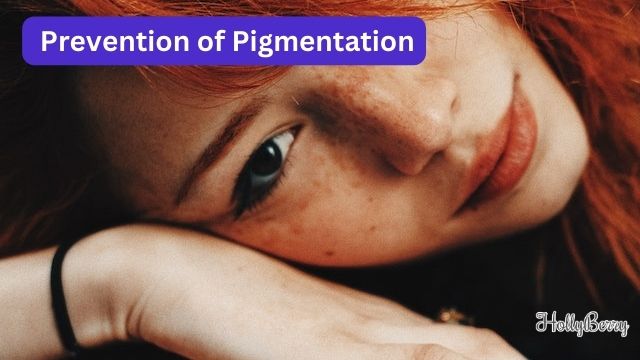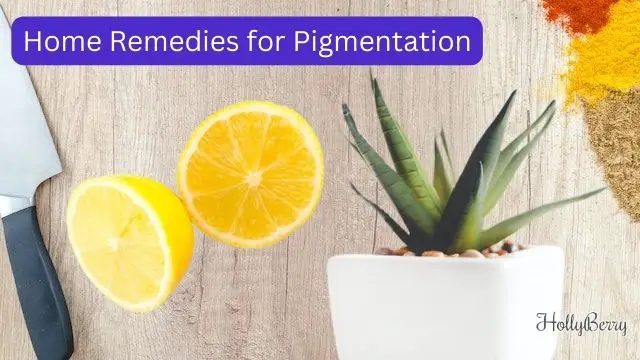
Pigmentation is a common skin condition that affects many people, especially those with darker skin tones. It is a term used to describe any type of discolouration on the skin, such as sunspots, age spots, freckles, and melasma.
Pigmentation can be caused by a variety of factors, including genetics, sun exposure, hormones, and inflammation. In this article, we will discuss everything you need to know about pigmentation and how to deal with it.
What is Pigmentation?
Pigmentation refers to the colouring of the skin, hair, and eyes. It is determined by the amount of melanin, a pigment that is produced by special skin cells called melanocytes.
Melanin is responsible for protecting the skin from the harmful effects of the sun’s ultraviolet (UV) rays. The more melanin your skin produces, the darker your skin will be.
Types of Pigmentation
There are several types of pigmentation, including:
Sunspots
Sunspots, also known as solar lentigines, are flat, brown spots that appear on the skin after prolonged exposure to the sun. They are most commonly found on the face, hands, and arms and are more common in people over the age of 50.
Age Spots
Age spots, also known as liver spots, are flat, brown spots that appear on the skin as a result of ageing. They are most commonly found on the face, hands, and arms and are more common in people over the age of 40.
Freckles
Freckles are small, brown spots that appear on the skin, especially on the face, arms, and shoulders. They are more common in people with fair skin and are usually caused by sun exposure.
Melasma
Melasma is a common pigmentation disorder that causes brown or grey patches on the skin, especially on the face. It is more common in women and is often associated with pregnancy, oral contraceptive use, and hormone therapy.
Causes of Pigmentation
There are several factors that can contribute to pigmentation, including:
Genetics
Pigmentation is often inherited, and some people are more prone to developing pigmentation disorders than others.
Sun Exposure
Exposure to the sun’s UV rays is one of the primary causes of pigmentation. Prolonged exposure to the sun can lead to sunspots and age spots.
Hormones
Hormonal changes can also cause pigmentation, especially in women. Pregnancy, oral contraceptive use, and hormone therapy can all cause melasma.
Inflammation
Inflammation caused by skin injuries, acne, or other skin conditions can also lead to pigmentation.
Prevention of Pigmentation

Preventing pigmentation is key to maintaining healthy and youthful-looking skin. Here are some tips to help prevent pigmentation:
Wear Sunscreen
Wearing sunscreen with a minimum SPF of 30 can help protect your skin from the harmful effects of the sun’s UV rays.
Limit Sun Exposure
Limiting your exposure to the sun, especially during peak hours (10 am to 4 pm), can also help prevent pigmentation.
Use Protective Clothing
Wearing protective clothing, such as hats, long-sleeved shirts, and sunglasses can also help protect your skin from the sun’s harmful rays.
Avoid Irritants
Avoid using skincare products that contain harsh chemicals or irritants that can cause inflammation and lead to pigmentation.
Treatment for Pigmentation
There are several treatments available for pigmentation, including:
Topical Treatments
Topical treatments, such as hydroquinone, retinoids, and vitamin C, can help lighten and even out the skin tone. These treatments work by inhibiting the production of melanin and promoting the growth of new skin cells.
Chemical Peels
Chemical peels use a combination of acids, such as glycolic acid, salicylic acid, and trichloroacetic acid (TCA), to remove the outer layer of the skin and reveal a brighter, more even complexion.
Laser Treatments
Laser treatments use concentrated beams of light to target and break down the excess melanin in the skin, resulting in a more even skin tone.
Microdermabrasion
Microdermabrasion uses a special machine to remove the outer layer of the skin and promote the growth of new skin cells, resulting in a brighter, more even complexion.
Home Remedies for Pigmentation

There are also several home remedies that can help treat pigmentation, including:
Lemon Juice
Applying lemon juice to the affected areas can help lighten and even out the skin tone. Lemon juice contains natural acids that can exfoliate the skin and promote the growth of new skin cells.
Aloe Vera
Aloe vera has anti-inflammatory properties that can help reduce inflammation and redness in the skin. It can also help lighten and even out the skin tone.
Turmeric
Applying a paste made from turmeric and water to the affected areas can help reduce pigmentation. Turmeric contains curcumin, a natural compound that has anti-inflammatory and antioxidant properties.
Apple Cider Vinegar
Applying apple cider vinegar to the affected areas can help lighten and even out the skin tone. Apple cider vinegar contains acetic acid, which can help exfoliate the skin and promote the growth of new skin cells.
FAQs
Is pigmentation permanent?
Pigmentation can be permanent, but there are several treatments available that can help lighten and even out the skin tone.
Can pigmentation be caused by stress?
Stress can exacerbate existing pigmentation, but it is not a direct cause.
Can I prevent pigmentation?
Yes, you can prevent pigmentation by wearing sunscreen, limiting sun exposure, using protective clothing, and avoiding irritants.
Can pigmentation be a sign of a more serious condition?
In some cases, pigmentation can be a sign of a more serious condition, such as skin cancer. If you are concerned about a pigmented lesion on your skin, you should consult a dermatologist.
Can home remedies help treat pigmentation?
Yes, there are several home remedies that can help treat pigmentation, including lemon juice, aloe vera, turmeric, and apple cider vinegar.
Conclusion
Pigmentation is a common skin condition that affects many people. It can be caused by a variety of factors, including genetics, sun exposure, hormones, and inflammation.
Preventing pigmentation is key to maintaining healthy and youthful-looking skin. If you do develop pigmentation, there are several treatments available, including topical treatments, chemical peels, laser treatments, and microdermabrasion.
Home remedies can also help treat pigmentation. By following the tips in this article, you can prevent and treat pigmentation and achieve a more even, youthful-looking complexion.


